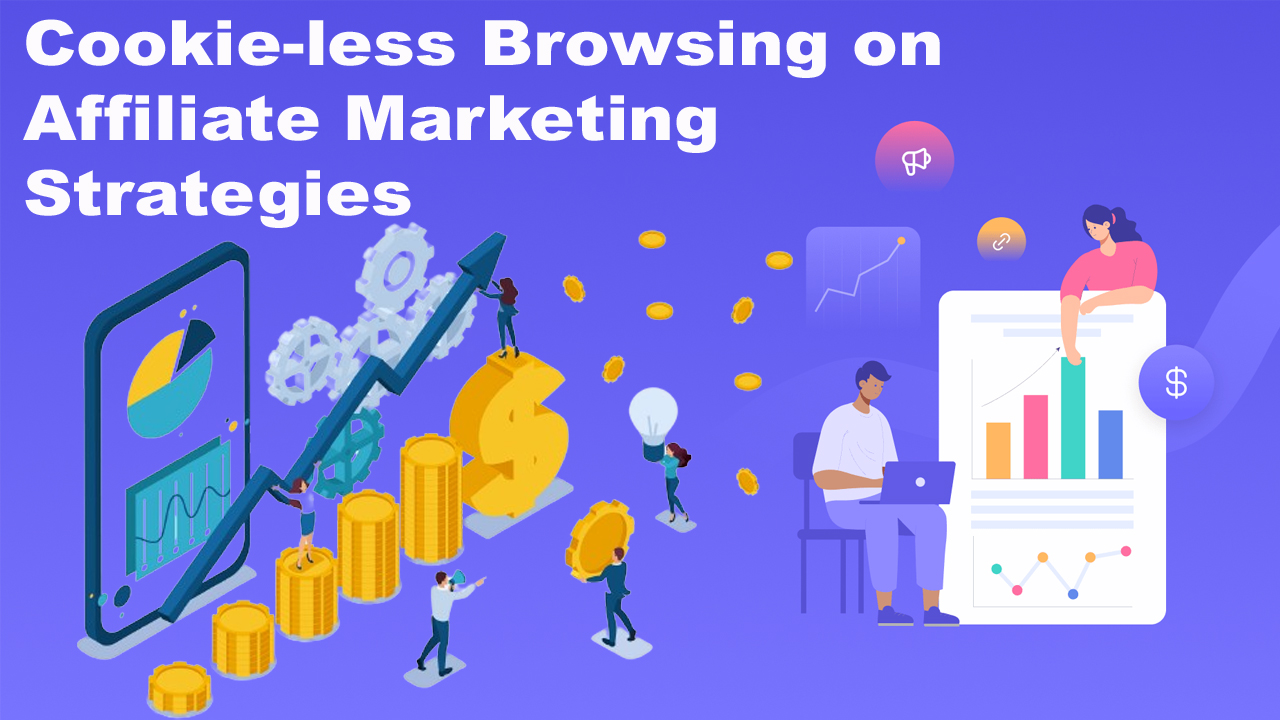The virtual advertising world is changing hastily because of growing privacy issues and stricter guidelines leading to the phase-out of third birthday celebration cookies by using the most important web browsers. Cookies which are small pieces of data stored on a consumer tool have been vital in affiliate advertising for monitoring personal behavior and attributing sales to the best affiliates. As browsers like Google Chrome Safari and Firefox block these cookies affiliate marketers face new demanding situations in tracking conversions personalizing content material and accumulating records. This shift to cookie-less browsing forces entrepreneurs to discover new techniques to maintain effectiveness and ensure compliance with privacy legal guidelines.
Table of Contents
What Are Cookies and Why Are They Important in Affiliate Marketing?

Cookies are small portions of facts saved on a person’s device once they visit a website and they play an essential function in associate advertising. These cookies music consumer behavior choices and online activities permitting entrepreneurs to recognize how users interact with their websites. In associate advertising cookies are especially critical because they assist song when a consumer clicks on an affiliate link and makes a purchase later making sure that the associate gets credit and a commission for the sale. Without cookies, it becomes tons harder to correctly sign and attribute sales to the right affiliate which can lead to missed profits and less powerful advertising strategies.
The Move Away from Cookies What is Driving the Change?
Numerous elements are riding the past far away from cookies in online surfing. One principal cause is growing issues over consumer privacy. Many humans are involved in how their private records are accumulated saved and utilized by websites and advertisers. Excessive profile information breaches and scandals have heightened those concerns. Additionally, governments around the world are implementing stricter policies to shield consumer data which includes the GDPR in Europe and the CCPA in the United States of America. These laws require corporations to reap clean consent from customers earlier than amassing their records and provide users greater management over how their records are shared. Every other element contributing to the shift far away from cookies is the decisions made by way of foremost net browsers like Google Chrome Safari and Firefox. Those browsers are updating their regulations to dam 1/3 birthday party cookies which are utilized by advertisers to track users throughout exclusive websites. This change pursuits to beautify personal privacy and protection whilst reshaping how digital marketing operates in the future.
How Cookie less Browsing Impacts Affiliate Marketing

The transition in the direction of cookie-less browsing introduces numerous considerable challenges for associate advertising and marketing
- Monitoring and Attribution The absence of cookies makes it more and more difficult to appropriately monitor a person’s behavior and attribute sales correctly. This jeopardizes the capability of comrades to get hold of due commissions as conversions would not be correctly connected to their efforts.
- Personalization Cookies are instrumental in handing over personalized content and classified ads primarily based on user preferences and browsing history. In their absence tailoring the user experience becomes considerably more difficult. This can doubtlessly result in decreased engagement and decreased conversion charges as marketers conflict to deliver applicable content material.
- Facts series Cookies have traditionally been a cornerstone for gathering and analyzing information on user behavior. These facts are essential for refining advertising strategies and enhancing marketing campaign effectiveness. Without cookies, the lack of this precious statistics move may impede marketers the ability to optimize their methods efficaciously.
Navigating those demanding situations would require affiliate entrepreneurs to discover alternative tracking techniques and innovative strategies to keep overall performance and compliance in a cookie-less digital landscape.
Strategies to Adapt to a Cookie less World
Adapting to a cookie-less global in virtual advertising and marketing requires adopting new techniques
- First-party records recognition on collecting data directly from customers with their permission. This consists of facts from signal ups purchases and loyalty applications.
- Server-side tracking Use server-aspect methods to song consumer actions rather than relying on cookies. This approach is more dependable and respects consumer privacy.
- Greater Consent explains facts collection practices to customers and attains express consent for tracking activities. Building trust is vital.
- Advanced tools explore associate networks and systems that provide cookies much less monitoring answers. Those may use techniques like fingerprinting or precise identifiers.
- Contextual advertising Shift to showing commercials based totally on the content of the website rather than consumer conduct. This technique respects privacy while still concentrating on applicable audiences.
By embracing these techniques marketers can navigate the cookie-less environment efficiently ensuring compliance with regulations even as optimizing marketing efforts.
Pros & Cons
Pros
- Users have the greatest control over their data which is improved privacy protection.
- This helps businesses comply with strict data privacy laws like GDPR and CCPA.
- Encourages the development of more secure and transparent methods for tracking user interactions.
- Builds trust with users by respecting their privacy preferences and data security concerns.
- Promotes a shift towards delivering high-quality contextually relevant content rather than relying on behavioral data.
Cons
- Makes it harder to deliver personalized ads potentially reducing ad relevance and effectiveness.
- Limits the ability to analyze user behavior and optimize marketing strategies based on detailed data insights.
- Disrupts traditional affiliate marketing models affecting commission attribution and revenue streams.
- Introduces complexities in implementing alternative tracking methods such as server-side tracking or fingerprinting.
- Requires investment in new technologies and platforms that support cookie-less tracking impacting operational budgets.
Embracing Change for Future Success
The shift to cookie-less surfing brings large modifications to affiliate advertising techniques. Without cookies monitoring consumer interactions and attributing sales will become greater challenging. Marketers ought to adapt via specializing in first celebration information the usage of alternative tracking techniques like server-side monitoring and making sure of clear personal consent. It is critical to explore new gear and structures that help cookie-less tracking and to pivot in the direction of contextual advertising and marketing for more centered processes. By embracing these changes associate entrepreneurs can navigate the cookie much less landscape efficaciously even by retaining compliance with privacy guidelines and optimizing their advertising efforts for persistent fulfillment.
Usama Shahid is a really good writer at Best SEO zone. He always makes interesting content that people enjoy reading. He works hard to create unique and high-quality content that connects well with readers. Usama writes about different things like technology, marketing, and SEO, explaining them in a way that’s easy to understand.




